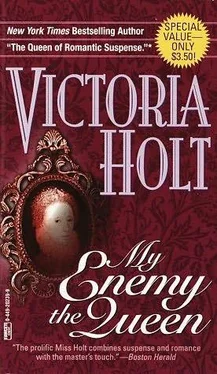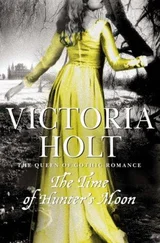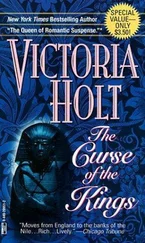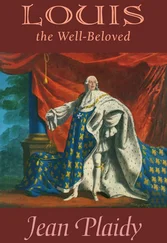Виктория Холт - My Enemy the Queen
Здесь есть возможность читать онлайн «Виктория Холт - My Enemy the Queen» весь текст электронной книги совершенно бесплатно (целиком полную версию без сокращений). В некоторых случаях можно слушать аудио, скачать через торрент в формате fb2 и присутствует краткое содержание. Жанр: Исторические любовные романы, на английском языке. Описание произведения, (предисловие) а так же отзывы посетителей доступны на портале библиотеки ЛибКат.
- Название:My Enemy the Queen
- Автор:
- Жанр:
- Год:неизвестен
- ISBN:нет данных
- Рейтинг книги:5 / 5. Голосов: 1
-
Избранное:Добавить в избранное
- Отзывы:
-
Ваша оценка:
- 100
- 1
- 2
- 3
- 4
- 5
My Enemy the Queen: краткое содержание, описание и аннотация
Предлагаем к чтению аннотацию, описание, краткое содержание или предисловие (зависит от того, что написал сам автор книги «My Enemy the Queen»). Если вы не нашли необходимую информацию о книге — напишите в комментариях, мы постараемся отыскать её.
It was always Lettice, the constant spoiler in the triangle of love surrounding Elizabeth...
My Enemy the Queen — читать онлайн бесплатно полную книгу (весь текст) целиком
Ниже представлен текст книги, разбитый по страницам. Система сохранения места последней прочитанной страницы, позволяет с удобством читать онлайн бесплатно книгу «My Enemy the Queen», без необходимости каждый раз заново искать на чём Вы остановились. Поставьте закладку, и сможете в любой момент перейти на страницу, на которой закончили чтение.
Интервал:
Закладка:
This being granted, he left England, taking with him his beautiful cousin, who had to dress as a boy and pose as his page. He left his wife and children in England and never returned to them, so he was not a man to take his responsibilities seriously.
Penelope continued her colorful career. After the death of Essex, Lord Rich divorced her and she and Mountjoy married. There was a great controversy about this marriage, which was performed by Mountjoy's chaplain, Laud. Many said that Laud had no right to marry a woman who had been divorced. For years Laud bemoaned the fact that this had prevented his preferment, although he was to leap into prominence later.
Poor Mountjoy, though honors had been heaped on him and he became the Earl of Devonshire, he did not live long after his marriage. He died in 1606, three years after the Queen's death; and Penelope died one year after him. She left me several grandchildren, not only Lord Rich's but three by Mountjoy—Mountjoy, Elizabeth and St. John.
It seemed strange that I should live on and my vital daughter be dead. But that was my fate. Sometimes I used to think: I shall live forever.
My daughter Dorothy died in 1619, three years before her husband's release from the Tower, whither he had been sent at the time of the Gunpowder Plot, suspected of having a share in it. He had been deprived of all his possessions and was sentenced to stay there for the rest of his life; and it was sixteen years later that his release was brought about through his daughter's husband. It had been a most unhappy marriage and often Dorothy had come to me to escape from him. When she died I was approaching eighty, but I still lived on.
I have seen so much in my long life. I lived on after Sir Walter Raleigh had gone to the scaffold. He had been unable to charm James as he had Elizabeth. I heard he had said as he laid his head on the block: "What matters it how the head lies, so the heart be right." Wise brave words, I thought, from Essex's enemy.
I sat in my chamber at Drayton Basset, and thought of Raleigh as he had once been—handsome, arrogant and sure of himself. So are the mighty brought low.
And still I lived on.
The King died and his son came to the throne—dapper Charles, whom I saw once or twice—a man of great dignity. Life had changed. It could never be as it had been under great Elizabeth. There would never be another like her. How she would have been saddened to see her beloved England fall into the hands of these Stuarts. The Divine Right of Kings! How often did we hear that phrase! She had believed in it, of course, but she had known that the sovereign ruled by the will of the people, and never would she have displeased them if she could help it.
James ... Charles ... what did they know of the glorious days when the handsomest men of the Court had circled round the Queen—moths to the candle and the cleverest of them knowing how to avoid singeing their wings. Her lovers—all of them, for they had loved her and she had loved them. But they were her fantasies; her true love was England.
Her death had taken something vital from my life, which was strange, for she had hated me and I could not say I ever loved her. But she was a part of my life, as Leicester was—and part of me died with them.
This sedate old lady in her manor house at Drayton Basset, caring for her tenants, playing lady bountiful, repenting her wild youth to make sure of a place in heaven, is this Lettice, Countess of Essex, Countess of Leicester, and wife of Christopher Blount? Poor Christopher! He did not really count. I had ceased to live dangerously and gloriously when Leicester died.
All this I lived through. These people flitted across the life of the times, played their parts and passed, while I lived on.
Now that I have written this story of the past I live it all again so vividly that it seems as though it happened only yesterday. When I close my eyes I sometimes feel that when I open them I shall see Leicester bending over me, raising me up to kiss him, to arouse in me that desire which we both found irresistible. I can fancy I am at the Queen's toilette, and that suddenly I receive a nip in the arm because I am dreaming and forgetting to bring her ruffs.
I see the three of us, side by side: Elizabeth and Leicester ... myself in the background ... important to them as they are to me. And then strangely enough Essex, the Queen, myself.
And they are gone and I live on.
I am over ninety. It is a very great age. I can be forgiven for fancying I am sometimes back in the past.
I like it best when my grandson, Essex, comes to see me. He is a man of great strength, punctilious in his zest for the right, a man who will do his duty, however unpleasant. He does not seek great honors. He is a great soldier—he could not be less like his father.
I hope my grandson will come to see me soon. Perhaps he will come for Christmas. I should like to see him then. He talks to me a great deal about the King and the Parliament and the troubles with the Church. He thinks that one day there will be a disagreement between the King and the Parliament, and he will not be on the side of the King.
I tell him that he talks like his father, recklessly. But in truth he is far from reckless.
He sits there before me, his arms folded, looking into the future.
How I hope that he comes this Christmas!
Early on Christmas morning in the year 1634, when her MAIDS WENT TO HER BEDROOM IN DRAYTON BASSET THEY FOUND HER AS THOUGH SLEEPING PEACEFULLY.
She was dead.
Leicester had died forty-six years before and Elizabeth thirty-one.
She was ninety-four years of age.
Bibliography
Aubrey, William Hickman Smith The National and Domestic History of England
Beesly, E. S. Queen Elizabeth
Black, J. B. The Reign of Elizabeth
Camden, William Annals of Elizabeth
Chamberlin, F. C. The Private Character of Queen Elizabeth
Froude, J. A. History of England
Gascoigne, George P rincely Pleasures of Kenilworth
Harrison, G. B. Life and Death of Robert Devereux, Earl of Essex
Harrison, G. B. An Elizabethan Journal 1591-1594
Harrison, G. B. A Second Elizabethan Journal 1959-1598
Harrison, G. B. A Last Elizabethan Journal 1599-1603
Hedley, Olwen Royal Palaces
Hume, David The History of England
Hume, Martin Courtships of Queen Elizabeth
Hume, Martin Two English Queens and Philip
Jenkins, Elizabeth Elizabeth the Great
Jenkins, Elizabeth Elizabeth and Leicester
Neale, J. E. Queen Elizabeth
Rawson, Maud Stepney Penelope Rich and Her Circle
Rouse, A. L. The England of Elizabeth
Rouse, A. L. Elizabeth and Her Subjects
Rouse, A. L. The Expansion of Elizabeth and England
Salzman, L. F. England in Tudor Times
Stephen, Sir Leslie, and Sir Sidney Lee, edited by John Stow, from the text of 1603 with introduction and notes by Charles Lethbridge Kingsford The Dictionary of National Biography Survey of London
Strachey, Lytton Elizabeth and Essex
Strickland, Agnes Lives of the Queens of England
Timbs, John, and Alexander Gunn
Abbeys, Castles and Ancient Halls of England and Wales
Wade, John British History
Waldman, Milton Elizabeth and Her Times
Waldman, Milton King, Queen, Jack
Williams, Neville Royal Homes
Wright, Thomas Elizabeth and Leicester
Интервал:
Закладка:
Похожие книги на «My Enemy the Queen»
Представляем Вашему вниманию похожие книги на «My Enemy the Queen» списком для выбора. Мы отобрали схожую по названию и смыслу литературу в надежде предоставить читателям больше вариантов отыскать новые, интересные, ещё непрочитанные произведения.
Обсуждение, отзывы о книге «My Enemy the Queen» и просто собственные мнения читателей. Оставьте ваши комментарии, напишите, что Вы думаете о произведении, его смысле или главных героях. Укажите что конкретно понравилось, а что нет, и почему Вы так считаете.











